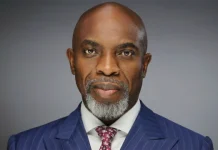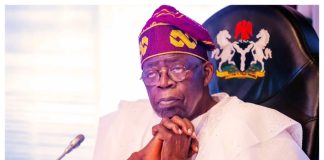The two-day Central Bank of Nigeria’s (CBN) Monetary Policy Committee (MPC) meeting, which commences today will be closely watched after the country’s emerging market peers – Turkey and Russia- recently raised interest rate.
This development is coming as the apex bank yesterday clarified its injection of N786 billion into Polaris Bank Limited, a new commercial bank that assumed the assets and liabilities of the defunct Skye Bank.
MPC members would be under pressure to take measures that would help the country retain exiting foreign portfolio investors (FPIs) amid turmoil in emerging markets (EMs), tame inflationary pressure and help halt external reserves depreciation.
Of more concern to the MPC members would also be that the United States Federal Open Market Committee (FOMC), which determines US interest rate and had signalled that it would likely hike interest rate this month and possibly in December. The Federal Reserve FOMC meets this Tuesday and Wednesday.
Russia’s central bank recently raised its main interest rate for the first time in almost four years, following Turkey in taking steps to defend its currency amid emerging market turmoil. The Russian central bank had raised its benchmark lending rate by 0.25 percentage points to 7.50 per cent.
But South Africa’s central bank last week left its benchmark rate at 6.5 per cent, in a tough decision by the policymakers.
Stock markets as well as currencies in EMs such as Argentina, Turkey, South Africa, Brazil, Mexico, Egypt, South Korea, Philippines and China, have plunged heavily in the past few weeks, even as the naira has remained stable. EMs across board have been under pressure since the US Federal Reserve raised interest rates in June.
In Nigeria, the external reserves have depreciated by 5.7 per cent this quarter, from $47.596 billion as of June 1, to $44.890 billion last Thursday.
The country recorded sluggish growth rate of 1.5 per cent in the second quarter of 2018.
Also, Nigeria’s Consumer Price Index, (CPI) which measures inflation increased by 0.09 per cent to 11.23 percent (year-on-year) in August, compared to the 11.14 per cent recorded the preceding month, the National Bureau of Statistics (NBS) had revealed. That was the first year-on-year rise in headline inflation after 18 consecutive disinflation in the index.
At its last meeting in July 2018, the MPC maintained the benchmark monetary policy rate (MPR) at 14 per cent, retained the cash reserve requirement (CRR) and liquidity ratio at 22.50 per cent and 30 per cent respectively. It had also announced measures to provide cheaper funding for some critical sectors of the economy to boost economic activities through its Real Sector Support Facility (RSSF).
CBN Deputy Governor, Dr Joseph Nnanna, had last month hinted about plans to increase the interest rate in response to higher inflation ahead of the general elections in February 2019.
According to Nnanna, virtually all members of the MPC had supported the idea that “the MPR should increase if inflationary pressures build up.”
Nnanna had said, “These factors would warrant a rate increase to send the right signal to the public, that the central bank will tighten policy to respond to higher inflation. There’s a scope to raise rates before the elections in February.
“The central bank is still in the mood for tightening. How fast are we going to tighten is what members haven’t agreed upon.”
Nnanna said while policy tightening by the United States Federal Reserve was a concern, investors still saw Nigeria as an attractive market, thanks to the stable naira and the yield curve on fixed-income instruments higher than in the US or Europe.
But analysts at FSDH Merchant Bank Limited, believe that the most appropriate monetary policy decision under the current economic and financial market situation “is to hold policy rates at the current levels,” saying the need to “provide necessary incentives for the Nigerian economy to achieve inclusive growth negates an option of a rate increase.”













